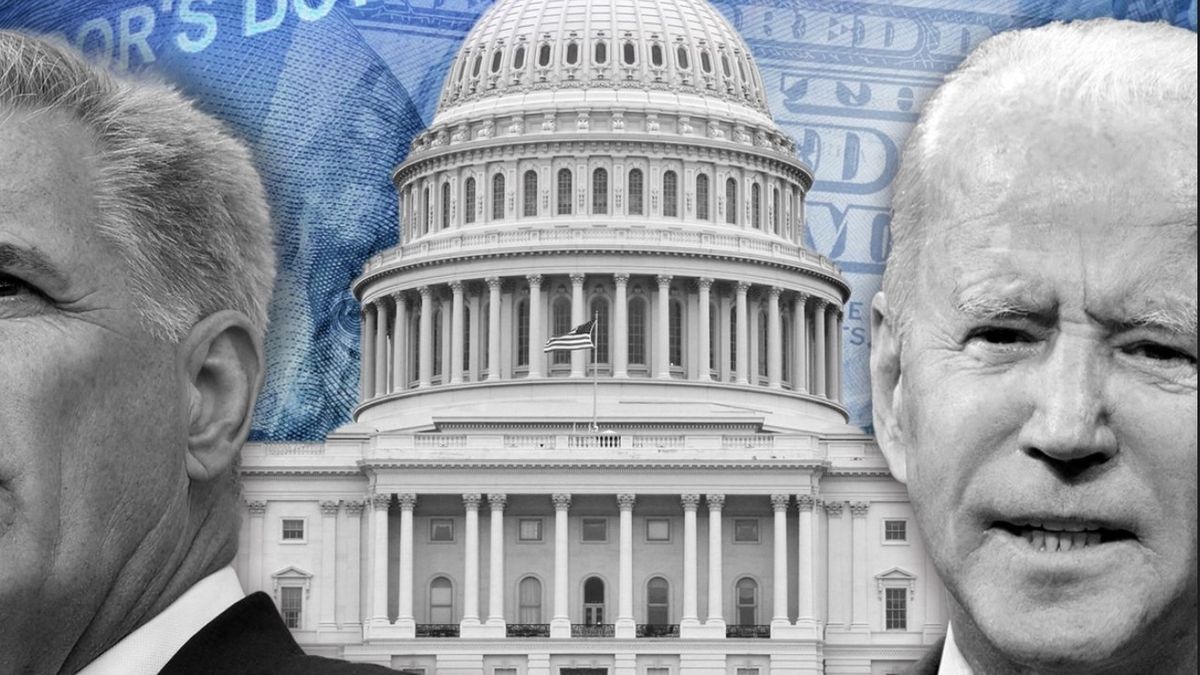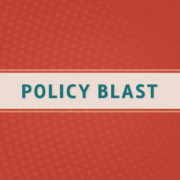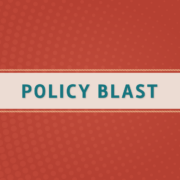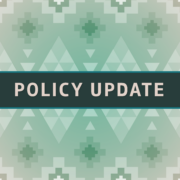House Passes Final Debt-Limit Deal with Advance Appropriations Authority for IHS
On May 31, 2023, after weeks of negotiations between President Biden and Congress, the House of Representatives passed by a margin of 314 to 117, The Fiscal Responsibility Act (H.R. 3746), which will suspend the debt ceiling through January 1, 2025.
The legislation includes spending caps on the total amount for non-defense discretionary funding for two years.
- The Indian Health Service (IHS) falls under non-defense discretionary funding, however, how the caps impact the actual IHS budget has yet to be determined.
The bill also includes “claw backs” of some unobligated COVID-19 funding, however, the American Rescue Plan funding for the Indian Health Service (IHS) is protected from these rescissions.
The legislation included the budgetary authority to extend advance appropriations for IHS for FY25 and FY26 but limits the advance appropriation amount for each year to the FY 2024 appropriated amount.
Lastly, the deal includes expanding certain work requirements for federal nutrition and cash assistance programs but does not include new work requirements for Medicaid.
House of Representatives Passes Final Debt-Limit Deal with Advance Appropriations Authority for IHS

Spending Caps for Non-Defense Discretionary Spending, including the Indian Health Service
-
This legislation “caps” (limits) non-defense spending from FY23 through FY24 and only increases by 1% in FY25. The FY24 cap for non-defense discretionary spending is $704 billion, with $121 billion for veteran’s medical care and the rest of the $538 billion would be allocated to other areas, such as IHS.
Go deeper: The agreement authorized increased spending for Veterans’ healthcare but does not include a similar specific authorization for Indian Health Service.
By the numbers: IHS was funded at $6.9 billion in FY23 and Congressional appropriators still retain authority on how the capped spending will be appropriated across federal programs.
What’s it all mean? At this point, it is unclear how the IHS budget for FY24 will be impacted.
“Claw Backs” on COVID-19 Relief Funds
What’s a “claw back”? The agreement includes “claw backs” which rescinds unobligated balances (funds that have been appropriated for a program or other purpose but have not been spent) from some COVID-19 funding.
The bottom line: IHS funds from the American Rescue Plan Act are protected however, it remains unclear what remaining other COVID-19 unobligated balances exist for IHS and whether they would be protected.
- For urban Indian organizations (UIOs), COVID-19 funds that the UIO has received will not be clawed back.
- Certain other COVID-19 funds that have not been obligated are potentially subject to claw backs.
Yes, but: At this time, IHS has not issued guidance about the effects on non-ARPA IHS COVID-19 unobligated funds that may be clawed back.
Advance Appropriations for the Indian Health Service: The bill authorizes advance appropriations for IHS for FY25 and FY26.
What’s next: It is still up to Appropriations Committees to appropriate that advance appropriation, but this sets up and enables them to do so. The funding must stay at the FY24 spending level.
Work Requirements for Federal Programs
The big picture: The bill adds some increased work requirements to qualify for the Supplemental Nutrition Assistance Program (SNAP).
- The bill raises the age requirement to 51 years of age in FY23, 53 in FY24, and 55 in FY25.
- However, the bill adds an exemption to work requirements for homeless individuals, veterans, and persons who are under 24 and were in a state foster care system until age 18 or any higher age as required by the state.
- The bill does not include explicit work requirement exemptions for American Indian and Alaska Native recipients.
- These amendments sunset on October 1, 2030.
What about Medicaid work requirements? Notably, the bill does not enact stricter work requirements for Medicaid, as in the House’s original debt limit legislation.
- On May 8, 20223, NCUIH signed on to a Partnership for Medicaid letter to Congressional Leadership expressing concern about work requirements as a mandatory condition for Medicaid eligibility in the debt ceiling bill.
- With over 1.8 million American Indians and Alaska Natives enrolled in Medicaid, NCUIH has worked diligently to ensure beneficiaries do not needlessly lose coverage.
How did we get here? The Fiscal Responsibility Act (H.R. 3746) comes after weeks of negotiation between President Biden and House Republicans after the House of Representatives previously passed the Limit, Save, Grow Act of 2023 (H.R. 2811) to lift the US debt limit for a year.
- That legislation included several measures, including reverting federal spending to FY22 levels, limiting spending increases to 1% a year for the next 10 years, rescinding any unspent Covid-19 funds, and enacting stricter work requirements for social programs such as Medicaid.
- The legislation was dead on arrival in the Democratic-led Senate as President Biden had indicated that he would veto the legislation.
- In response to this legislation, NCUIH released a statement calling on Congressional leaders to safeguard Indian health funding from proposed cuts.
Looking Forward: This legislation will now be considered in the Senate, hoping to pass it by Friday, June 2. NCUIH will continue to advocate for the protection of the Indian Health Service.
Resources
- Full Bill Text – H.R. 3746
- NCUIH Statement – Proposed Legislation to Lift US Debt Limit Threatens Native Health Care










Leave a Reply
Want to join the discussion?Feel free to contribute!